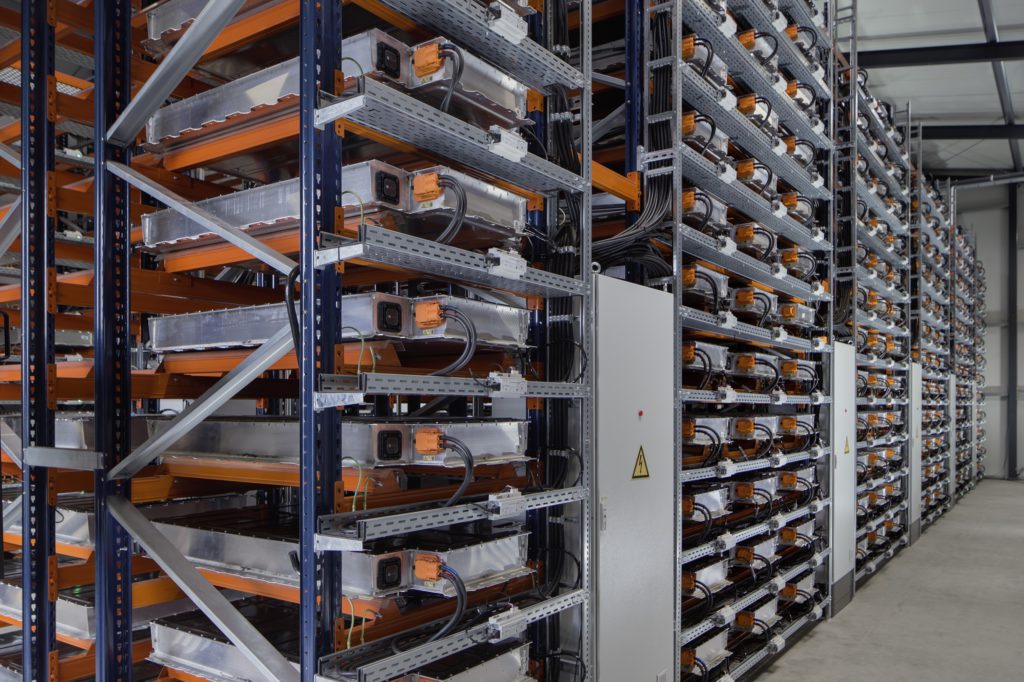Battery manufacturing needed to secure UK jobs
17 March 2020

17 March 2020
The UK automotive industry could lose out to Europe when it comes to securing large-scale electric vehicle (EV) manufacturing if it fails to attract investment in gigafactories.
Failure to attract companies to the UK could cost the country 105,000 jobs, according to forecasts by the Faraday Institution. As carmakers around the world increase their EV output to meet strict EU CO2 emissions targets, countries across Europe are pitching themselves as the best place to produce these vehicles to secure the future of their automotive industries.
′In a worst-case outcome, with no large-scale UK battery production, domestic vehicle producers would gradually wind down their production of internal combustion engine (ICE) vehicles, progressively eliminating the jobs of the 170,000 people directly employed in the UK automotive sector,' the institute said.
′In the absence of any gigafactories producing batteries and associated EV manufacturing, we forecast that direct automotive employment would be 105,000 lower in 2040 than it would otherwise be.'
Firm belief
Currently, most of the global battery output comes from Asia. Yet as production levels of EVs increase, the need to decrease complications in the supply chain will see gigafactories built across Europe to feed into manufacturing lines.
′Over time, car production will migrate to where the battery production is,' said Neil Morris, the Faraday Institution's chief executive. ′We're at or near the fork in the road.'
Under its ′central' scenario, the Faraday Institution believes that UK EV battery manufacturing capacity in 2040 will be around 140GWh per year, around 12% of the projected 1,200GWh annual European battery-production capacity by that time. This implies considerable growth in UK battery manufacturing with the establishment over the next 20 years of about seven gigafactories in the UK – each producing on average 20GWh of battery capacity each year.
Investment fears
France and Germany have announced plans for up to €6 billion of investments in battery production, as they seek to secure employment for millions of workers in their automotive industries. The European Commission has also approved a separate plan by Belgium, Finland, France, Germany, Italy, Poland and Sweden to pump €3.2 billion into starting a European battery industry.
Yet following the Brexit referendum in 2016, investment in the UK automotive industry has collapsed. While the country is still in a transition period, there is no knowing what may happen in the future, as a trade deal is still under negotiation.
An average of £2.7 billion (€3 billion) was pumped into the UK car industry each year up until the referendum, but in the first half of last year, carmakers invested just £90 million in the country. This will grow during 2020, with Hyundai alone investing £100 million in electric commercial-vehicle startup Arrival. Still, it is unlikely the levels of spending will reach parity with the rest of Europe.
Brexit itself still has a part to play too, with Tesla chief Elon Musk deciding against building a gigafactory in the country because of the continued uncertainty. Instead, the carmaker is locating its first European base in Germany.
′Without urgent action from stakeholders, the UK is in danger of losing out in the race to develop a large-scale domestic EV battery supply through the required investment in new factories,' the Faraday Institution report states. ′Our modelling shows that to realise a successful EV transition through a ramp-up of UK battery manufacturing capacity by 2040, investment in the range of £12 billion will be required.'